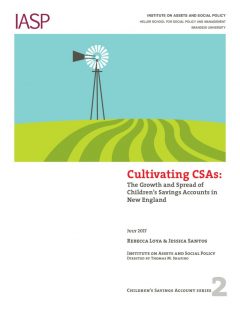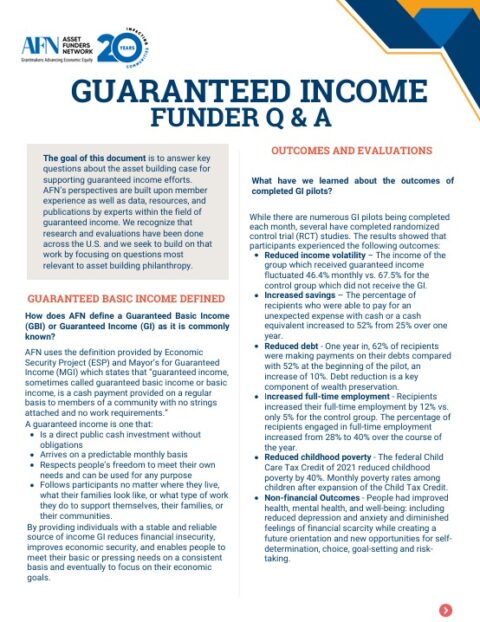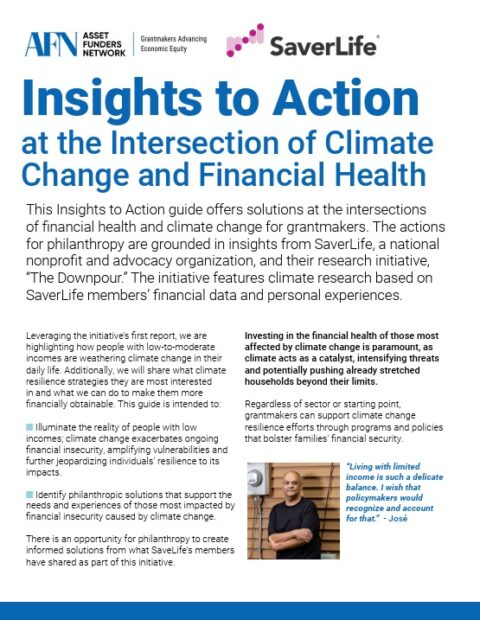Over the past 20 years, state and local policymakers across the United States have been exploring Children’s Savings Accounts (CSAs) as a strategy to improve educational attainment and economic outcomes for children, communities, and entire regions. CSAs are programs that combine long-term savings platforms with financial incentives to support children in saving for postsecondary education. The field has grown through policy and practice since Michael Sherraden first introduced the idea in the early 1990s. By the end of 2016, 313,000 children in 29 states had CSAs, and this number continues to grow.
This report from the Institute on Assets and Social Policy investigates the factors that have enabled New England leaders to learn from each other and advance CSA policy in their own jurisdiction and beyond.
Of additional value is the dedicated IASP research page, focused on Children’s Savings Accounts.




